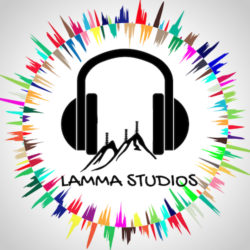This is the third and final installment of my series on orchestra audition principles, tips, and tricks. Today covers Audition Day. For Part One covering general philosophy click here, and for Part Two on preparation, click here.
Finally the big day has finally arrived! After a thorough, relaxed and joyful preparation, we are now ready to go play. Yet there are still many pitfalls for us to avoid and many opportunities to stand out from the crowd. We can never guarantee that what we do will result in victory but we can do our best to get in the best position possible to play our best. Let’s get to some of my favorite audition day principles:
1) Food, drink, and sleep.
Everyone has their own formula for the optimal combination of sleep, food, coffee, and whatever else for an audition. Everyone is different in what makes them play the best, and so it’s important to get this right about yourself.
Generally it’s a great idea to go to bed early and get as much rest as you can the night before the audition and to eat lightly or not at all the morning of the audition. The logic of this is simple- our bodies and minds are designed to perform well when we don’t have a lot to eat. I know many people like to loudly disagree with this and insist that they cannot handle fasting, but I believe an empty stomach makes for a stronger mind in a pressure situation.
However don’t try to do this for the first time the day of the audition. I suggest instead to follow whatever habits you have in place for the preparation process. Notice in your preparation when your mind feels sharpest and you feel the best playing and then note everything you can about that experience, including what you had to eat/drink that day. Find out what does best for you and then do the same thing on Audition Day.
One exception to this is coffee. If you are normally a coffee drinker I suggest avoiding coffee the morning of the audition or at least minimizing intake. When the adrenaline from the perfromance pressure comes into contact with caffeine, there’s a good chance that an overexcited/nervous reaction will occur. So skip the Joe on the big day if you are at all sensitive to caffeine.
One other big game changer is water- good hydration is very important for optimal brain function so make sure you are very well hydrated starting from few days beforehand. Concentration brings dehydration, so bring water with you and keep drinking it. Just make sure to go to the bathroom before you play!
2) Beta blockers
Here’s another semi-taboo subject. The fact of the matter is that many many classical musicians take beta blockers before auditions and big performances. I don’t take them when I play concerts, but when I took auditions I usually took a small amount of them. Something like 5-10 mg of propranolol or atenolol was all I needed to avoid my heart getting away from me in the heat of the moment.
When we walk out onto stage for an audition, it is very possible to get a physiological freeze, fight-or-fight response. This is very helpful when confronted by a man eating tiger or other life-threatening situation. However for an audition we don’t need the extra burst of adrenaline, tightening of muscles, blood flow into the big muscle groups and elevated heart rate that comes with that response. A small dose of beta blockers stops that reaction from coming up and tightening up our lips or bow arms or making us shake a little at the end of the bow. Try it for yourself and decide if you need it. Please experiment with it before the audition to get an idea of how you react and don’t take too much or it will slow you down.
Disclaimer: this is not medical advice, consult a doctor for medical advice. This is also the only time I recommend to anyone to take something from Western pharmacology.
3) Keep the focus on your “Why?”
In Part One I discussed having a good why for taking an audition. To recap: it’s best to have an internal motive like playing your best, having a fun and enjoyable musical experience, expressing yourself artistically or learning things and getting better. Not good: to have a win/lose based motive, to try to please someone else, beat someone else, etc.
Since you figured out your “Why?” already in the preparation process, it should be easy to remember now. Throughout the day, remind yourself of your highest goals. It helps to have it written down of a small piece of paper that you can take out and refer to. Remind yourself again of your “Why?” as you are walking out on stage to play.
4) Only play. Don’t self judge and don’t compare yourself to the other candidates.
We want to put as close to 100% of our emotional and mental energy into the music when we are playing. This is only possible with 100% of our attention on the music we are generating inside and outside ourselves. Therefore we cannot be keeping tabs on how well we are performing. Don’t self judge when you play the audition. Just put all your energy and attention into playing!
It’s also easy to go to audition and hear all the other candidates playing and warming up and get intimidated or cocky. Both of these are not ideal. Keep the focus on what you intend on playing, and try to tune out what the other people sound like in the warmup room. If you are trying to win the audition the best idea is to keep your mind on your own playing.
Of course if your main goal of this audition is to learn, in that case try to listen to everybody and learn! Figure out where you sound good in comparison to the field and where you need to improve to compete. The better players, what makes them better? In this scenario, try to learn as much as you can about the competition for next time.
5) Warm up on the instrument only as much as you need to!
This is a big pitfall for many young players, especially on the instruments with bigger endurance requirements like trumpet. I fell into this trap many too many times. I played too much in the warmup room, worrying about whichever excerpts I felt most insecure about and playing so much that I was already tired before I stepped out on stage.
I have a rule now for auditions- if I haven’t learned it by the day of the audition, I won’t learn it! I suggest keeping instrumental warmup to a minimum and instead focusing on other warmups, physical, mental and musical.
6) Warm up with visualization, singing, stretching, breathing and yoga, etc.
This is a warmup that will really help you succeed. Since you already prepared a mental movie visualization of your audition, it should be ready to go to work for you in the warmup room. Sit back, relax, and enjoy one more time watching yourself walk out on to stage and play well with ease and joy. See yourself winning already. Sing a few things, getting yourself into the musical mood. Get your body moving to the music! Do some stretches, deep slow breathing, meditation, Qigong, or yoga. Play a few notes, sure, but in the spirit of warmup and feeling good, not as a pre-performance.
*7) To combat stage fright right before you go out, do some big yoga poses, deep slow breathing and the warm stomach- cold forehead visualization. *
To counteract the freeze-fight-flight response, try the following- some big yoga poses that involve opening up your arms wide, with some slow deep breathing. This counteracts the urge to get smaller under pressure.
When stressed, our bodies shut down digestion and send all available blood/energy to the brain and large muscles. Therefore, hot forehead, cold stomach. To counteract this response, visualize the opposite- that you have a cold forehead and warm stomach. Try this and really make yourself believe it and it will reverse the stress response. Thanks to my university trumpet teacher Bill Lucas for this one.
8) On stage-Relax, take it slow, breathe!
On stage, everything can go by in a rush. There’s a lot going on inside our minds, so much to remember, and it’s impossible to keep track of every detail. Instead of worrying, just relax. You prepared well, and there’s nothing you can do to change your preparation now. You will perform your best if you relax and let your training take over. So take a slow deep breath, let out any tension you can, and enjoy the music.
9) Electronic Devices on Stage
When I was auditioning I was always sneaking on electronic devices of some sort or another. I used metronomes, tuners and recording devices. I know that many orchestras have no-device policies, and some did in my day as well. However, I also refer to the NASCAR mechanics’ saying on this one, which is “If you ‘aint cheating, you ‘aint trying.”
Be subtle of course, but I believe that we as auditionees are within our rights to at least have a recording device with us. It’s our audition, and our playing, and we traveled a long way and prepared for months. The least we should get out of our audition if a recording of ourselves we can study for future use. I would start my device ahead of time and stick it in my case. I suppose now an iPhone set to record in a coat pocket would work pretty well now.
Another device I would have used a lot when I played auditions is the Soundbrenner Pulse, which gives a vibration pulse and looks like a watch. For keeping tempo steady on certain excerpts in the think of things it would be very helpful. Don’t tell anyone I told you to do this please.
10) Enjoy the experience!
This is not just advice to make you feel good. It will also make the committee feel good if you feel good while you are playing. Remember, you want them to feel good when you play. If you are uncomfortable, so will they be. So for everyone, please enjoy yourself. There’s beautiful music right behind your excerpt, and if you can tap into that and enjoy it, that will come across and the committee will like you without even knowing why. In a largely joyless activity- auditions- a little bit of enjoyment will help set you apart in a way that even the best technique will not.
This concludes my series on auditions. I could write more and more on this subject, but I suppose I need to keep a couple tricks to myself in case I ever decide to come out of retirement. Please feel free to ask questions in the comments section if I missed anything and best luck everyone!

